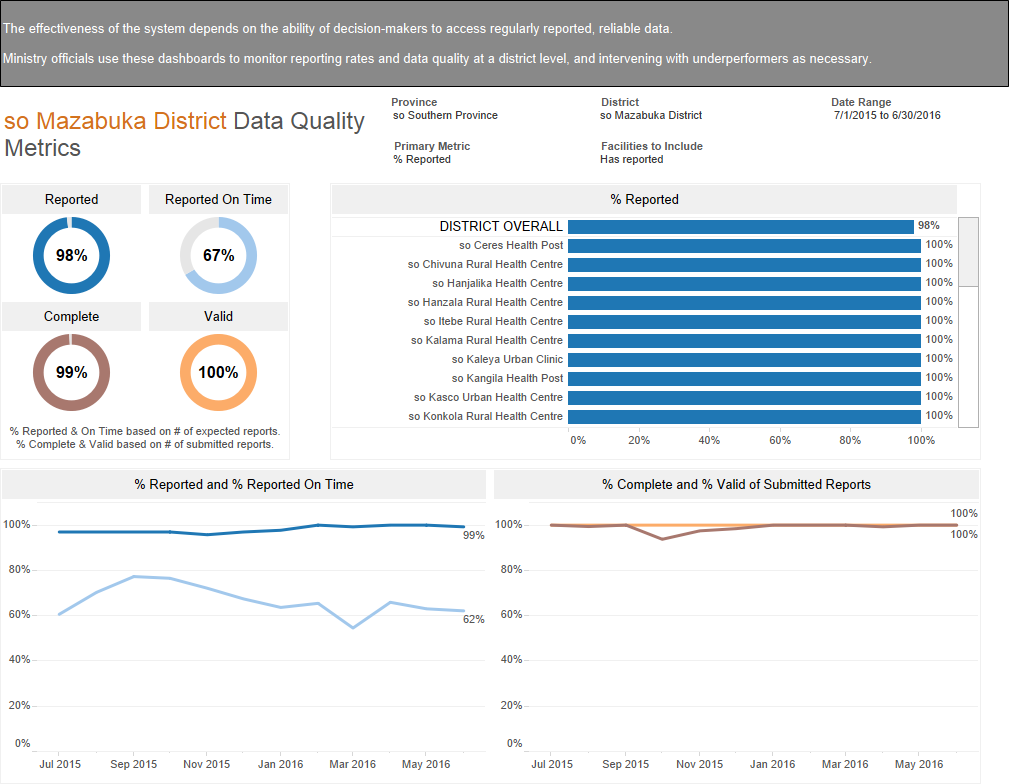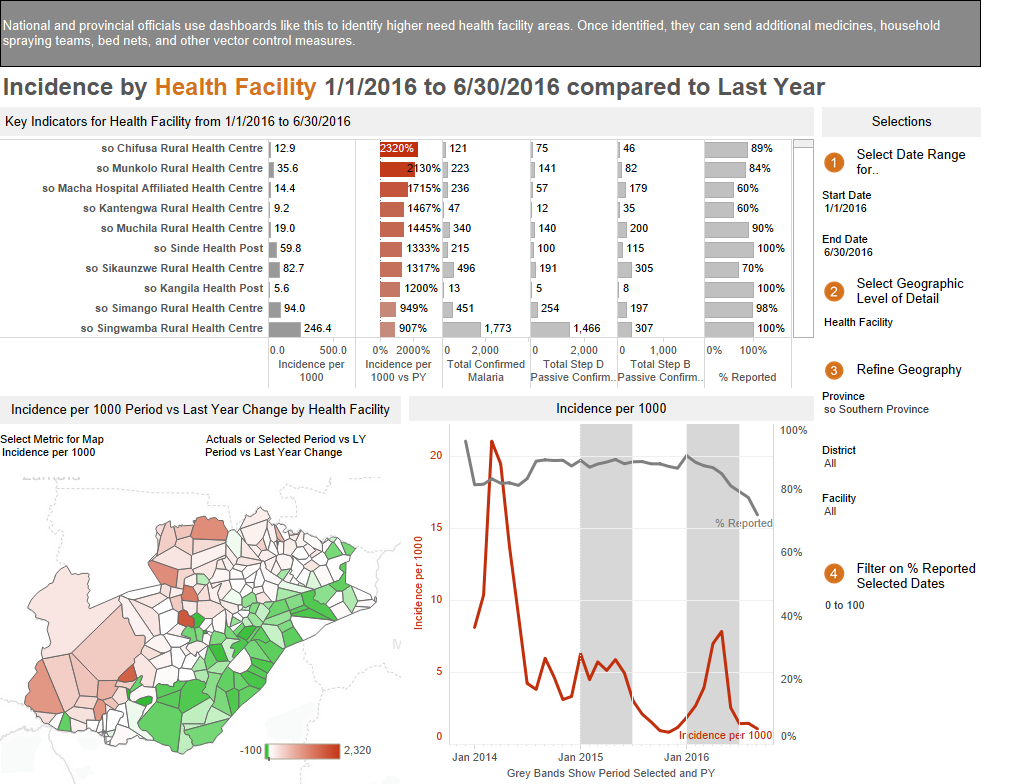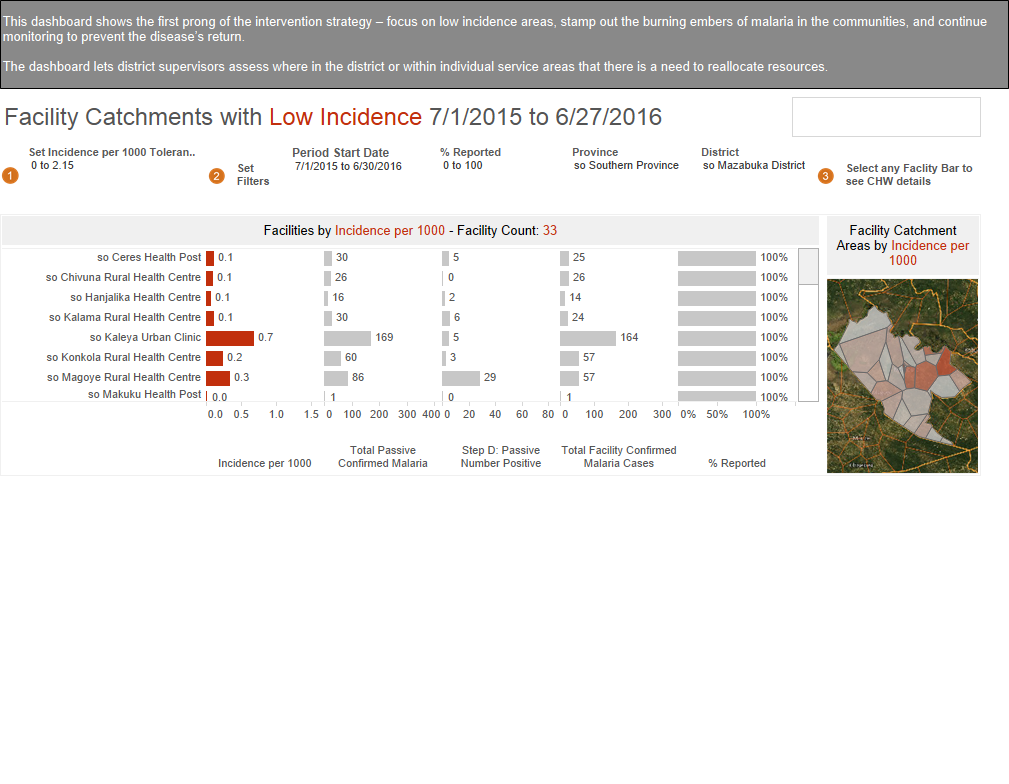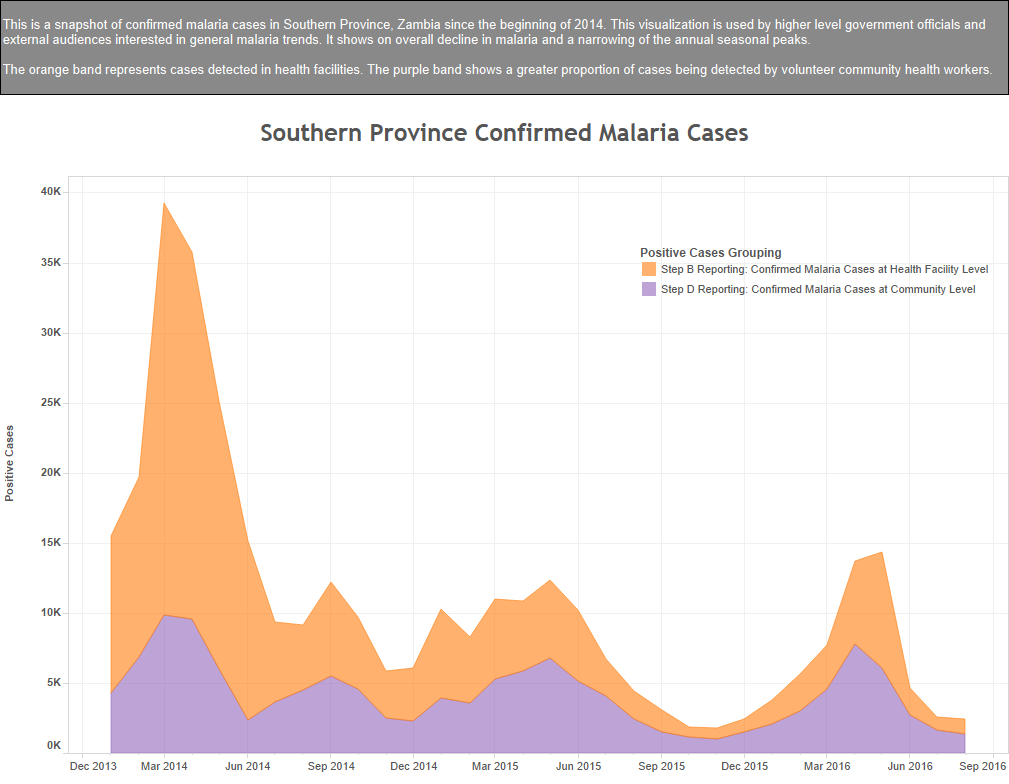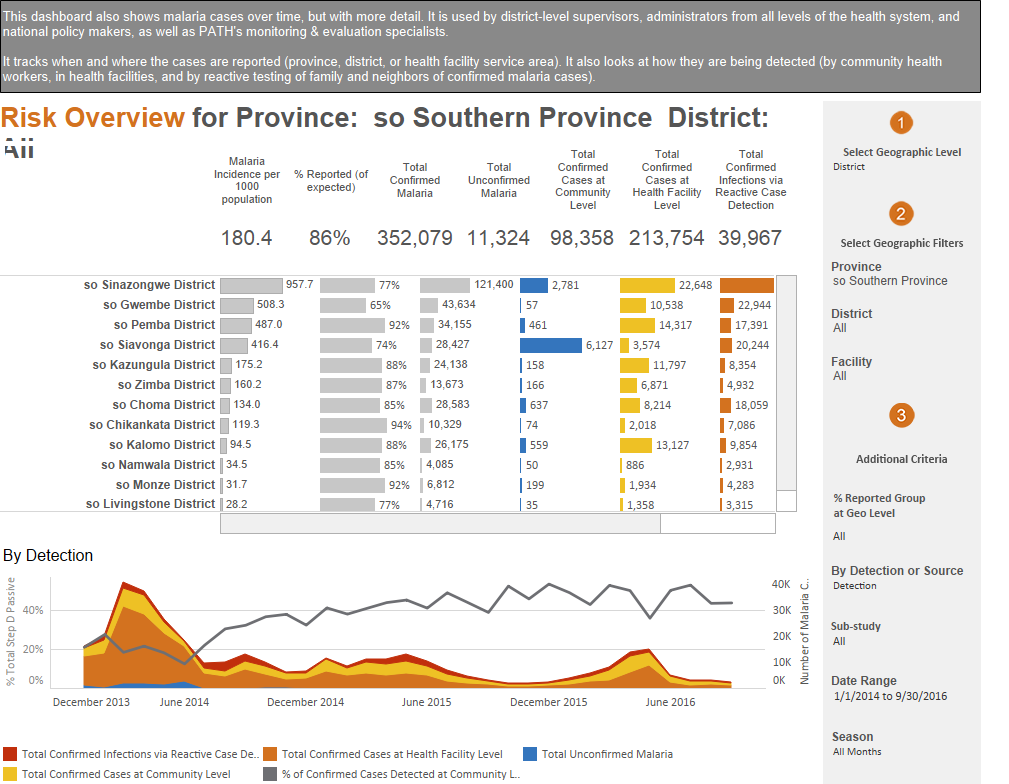EXASOL, a high-performance in-memory analytic database developer, and PATH, an international nonprofit organization and global leader in health and innovation, today announced a partnership to support the Zambian government’s ambitious campaign to eliminate malaria by 2020.
“Data analytics is often discussed as a way for business to derive value from the data they hold, whether that is to increase profitability or serve customers better,” said Aaron Auld, CEO, EXASOL. “But data can also unlock important information that can help organisations such as PATH improve the way they address Malaria. This ultimately shows the value of data in saving lives.”
EXASOL joins a transformative partnership—Visualize No Malaria—between the Zambian Ministry of Health, PATH, Tableau, and technical partners including Alteryx, Mapbox, DataBlick, Twilio, DigitalGlobe, and Slalom.
EXASOL’s contribution—access to the EXASOL database in the cloud on Amazon Web Services—enables the Visualize No Malaria team to perform highly complex queries of not just “big data” but truly “massive data” with speed that enables almost instant rendering, allowing for real-time analysis.
Allan Walker, a volunteer with expertise in data analytics and visualisation, is helping PATH’s#visualizenomalaria team create analyses that estimate where malaria cases will be more likely to occur. The analyses aim to find the relationship between the mosquito vector and the human carriers of the disease.
The team’s current project involves loading complex geospatial data into the EXASOL database to model geological features in Zambia’s Southern Province such as elevation and slope and hydrological features such as topographic wetness and stream power. This shows whether the land is dry or wet, and if water is still or moving.
The team also regresses time-series models of population density and mobility, and meteorological models of precipitation and temperature, to establish a relationship with the epidemiological data. Once honed, the analyses could be used by Zambian decision-makers to focus on probable malaria outbreak areas and quickly respond to new cases.
“EXASOL simply puts the ‘snap’ and ‘zing’ back into Tableau projects, regardless of scale, effortlessly returning queries of billions of rows of data,” Walker said. “It has back-end database power and speed that Tableau developers require and users in the field will appreciate.”
Jeff Bernson, senior director of PATH’s Results Management, Measurement and Learning Department, said, “If you’re trying to inspire data use among counterparts and decision-makers, watching a spinning wheel and waiting for dashboards to render can often be a deal breaker. Partnering with EXASOL and Tableau is helping us tackle challenges with data access and speed. It truly aligns with our focus to develop and apply transformative innovation in low-resource settings.”
“It has been a great pleasure to support PATH in this fantastic initiative,” Auld continued. “Furthermore, we have an enormous amount of respect for Allan and his team for their dedication and hard work around the program. We are grateful to Jeff and the PATH organisation for their decision to engage with us, and we look forward to continuing to make a contribution towards supporting PATH and the Zambian government in their efforts.”
For 40 years, PATH has partnered with the private sector, governments, and civil society institutions to create market-based solutions that change the course of disease, transform health, and save lives. By convening strategic partnerships, PATH touches 150 million lives a year around the globe through projects including this one supporting Zambia’s plan to eliminate malaria.
Malaria, a mosquito-borne illness, has seen remarkable reductions worldwide, with mortality rates declining 60 percent since the year 2000. But this preventable disease is still killing too many people in sub-Saharan Africa, where malaria takes the life of a child every two minutes. In Zambia alone, it’s estimated nearly 3,000 people die from malaria each year.
Lead Editor for "Future Story Of" an exciting new brand coming soon!
Social Media Manager for Compare the Cloud and Disruptive Live.
Fluent in French, would like to live in a castle, owns a french bulldog called Pepper Pig.



